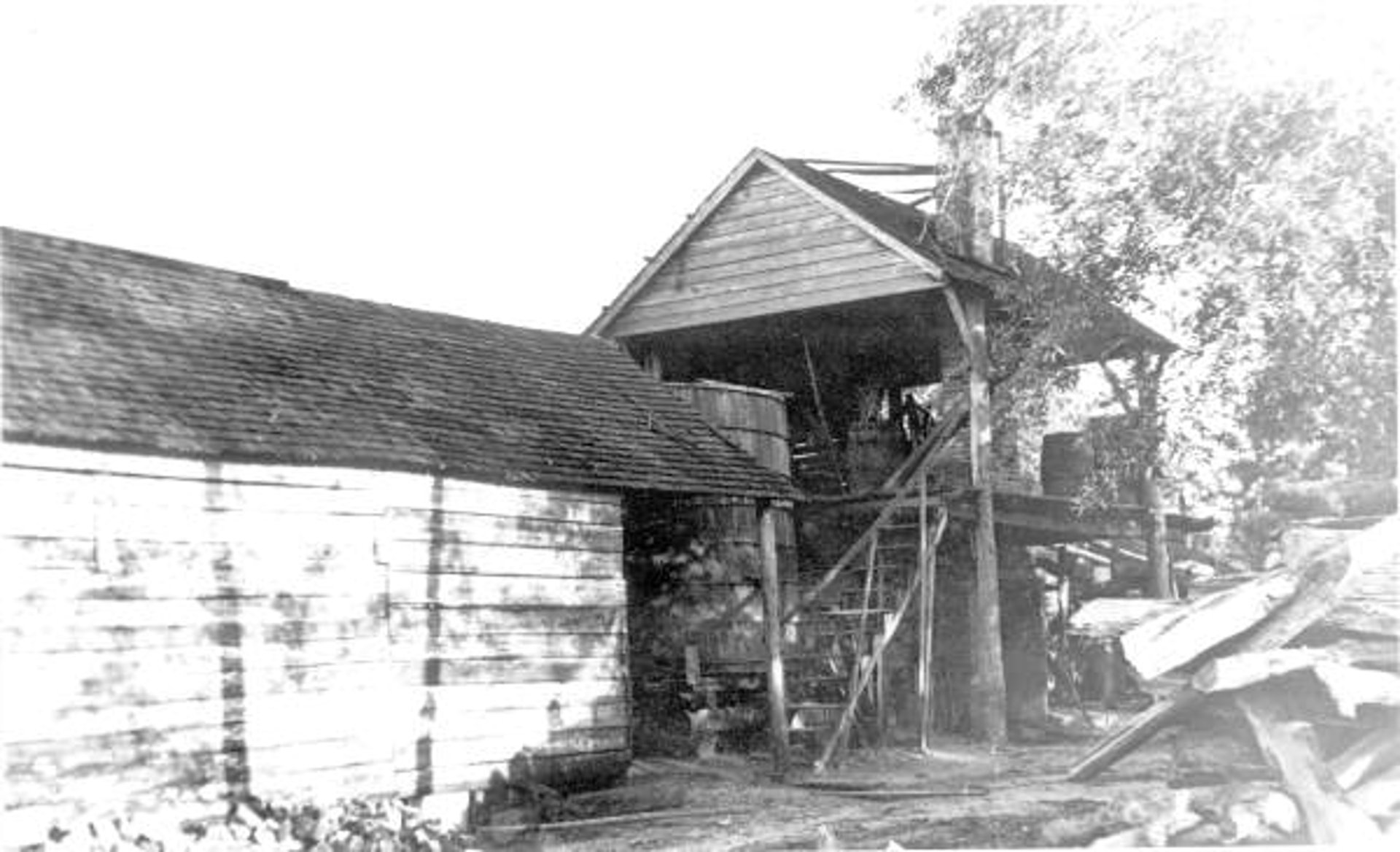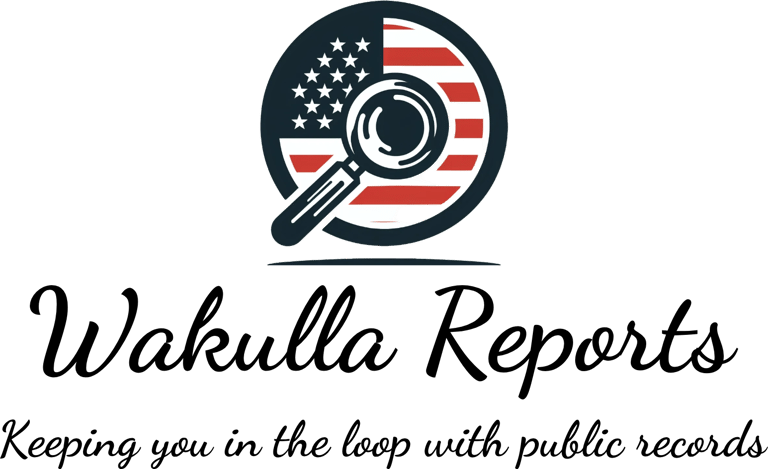Wakulla County’s June 16 Agenda and Audit Digest: Easements, Grants, and Roads Meet Financial Fumbles
Wakulla County’s June 16, 2025, BOCC agenda dives into sewer easements, $92 million sewer upgrades, $18 million loans, and new subdivisions, while audits expose $12,670 permit overcharges, $6 million sewer fee errors, and library bookkeeping lapses. Wakulla Reports unravels it all for taxpayers, urging transparency to keep the county’s financial tide from turning murky.
WAKULLA BOCC MEETINGS2025
Ida B. Wells
6/12/20256 min read


Link to Full Agenda
Wakulla County taxpayers, grab your oyster shuckers and dive into the June 16, 2025, Board of County Commissioners (BOCC) agenda—ride the wave of sewer easements, million-dollar grants, new subdivisions, and road fixes that could continue to steer our coastal county’s future, all while recent internal audits on libraries, building fees, sewer waivers, and taxes expose the choppy waters of financial sloppiness. From a $92 million sewer overhaul to a new fire station, this agenda’s packed, but audits revealing $12,670 in overcharged permits, a $6 million sewer fee fiasco, untracked library donations, and tax roll errors remind us to keep our eyes peeled for accountability. Wakulla Reports is here to break it all down in plain English, so let’s wade through the agenda, connect it to the county’s financial undertow, and ensure your tax dollars don’t get swept away.
The Audit Backdrop: Wakulla’s Financial Flops
Before we hit the agenda, let’s anchor ourselves with recent internal audits that set the stage for why transparency matters:
Library Audit (2025): The Wakulla County Library’s ordering process is solid, but untracked book donations (100+ yearly), misclassified nonprofit funds, and a $1 million collection not listed as a fixed asset point to careless bookkeeping by the Clerk’s Office Finance Department. Library staff are fixing donations, but Finance’s sloppiness echoes past county fumbles.
Building Department Audit (2025): The Building Department overcharged $12,670 in permit surcharges since 2017 (using 1.5% instead of 1%), underpaid $16,750 to the state (DBPR), and missed public reports, with typos like $35,395 instead of $35.95 skewing records. Finance and Building’s errors cost taxpayers and homeowners, demanding tighter controls. Try underpaying state on sales taxes as a business owner and see how that works out.
Sewer Fee Audit (March 2025): A $6 million waiver of sewer connection fees, lacking BOCC approval, tied to a botched NWFWMD grant and a risky USDA loan workaround, left taxpayers vulnerable. This financial disaster shows the county’s knack for big bets with shaky oversight. See stand alone blog for a deeper dive here.
Non-Ad Valorem Tax Audit (2023): A $14 million tax roll error hit businesses and homeowners, highlighting systemic issues in Finance’s record-keeping, a pattern that lingers in today’s agenda. See stand alone blog for a deeper dive here.
These audits outline a common theme: Wakulla’s financial ship needs a steadier helm. With this backdrop, let’s navigate the June 16 agenda.
Consent Agenda: Routine Waves or Hidden Currents?
The Consent Agenda (Items 1–6) is voted on in one swoop, meant for routine business, but “routine” is a fluid term with this group. Here’s the breakdown:
1–2. Meeting Minutes (June 2, 2025): Approving minutes from the first FY 2025/2026 budget meeting and regular BOCC meeting. These should be rubber-stamps, but past agendas (e.g., April 3, 2025) skipped public input, so check mywakulla.com to ensure your voice is logged.
3. Bills and Vouchers (May 29–June 11, 2025): Paying county expenses, from utilities to contracts. After building audit typos and library fund mix-ups, taxpayers should scan these on mywakulla.com for oddities—sloppy bookkeeping isn’t new here.
4. Bank Loan Extension and $18M Draw: The county’s extending a 2023 loan with JPMorgan Chase and the Florida Local Government Finance Commission (FLGFC) from April 2026 to April 2027, keeping a $32.7 million credit line for grant-funded projects like roads or facilities. They’re also pulling $18 million (Draw A-1-3) to cover construction until grants reimburse. With $50 million already borrowed at 2.12% interest ($1.06 million cost), it’s a low-rate deal, but the sewer fee audit’s $6 million blunder begs for clarity on project specifics. “No budgetary impact” assumes grants pay up—let’s hope there’s no repeat of past grant missteps.
5. Mulberry Circle Sewer Easement: The county wants a permanent utility easement at 142 Mulberry Circle for a septic-to-sewer conversion in Ridgeland Place and Highland Place, tying to Lift Station #42. The owners agreed, but “no budgetary impact” suggests they’re unpaid, raising fairness questions. After the sewer fee audit’s transparency fail, taxpayers need to know: is this a donation, or are terms hidden? Were the landowners informed that they did not have to give this access away for free?
6. Otter Creek Filter Grant ($619,375): A Florida Department of Agriculture and Consumer Services (FDACS) grant will replace inefficient filters at the Otter Creek Reclamation Facility (OCRF), saving energy without county matching funds. The two-year project, with monitoring, delegates the County Grant Manager for paperwork, but a “termination for convenience” clause risks county costs if FDACS bails. A budget amendment sets up a $619,375 fund, but the library audit’s untracked assets warn us to watch spending.
General Business: Big Projects, Bigger Stakes
Items 7–12 and 17 dive into infrastructure and funding, with millions on the line:
St. Marks Fire Station Grant ($2.1M): A $2.1 million state grant from the Department of Financial Services will build a fire rescue station north of St. Marks, off Woodville Highway, meeting FEMA floodplain standards and improving the county’s ISO rating (potentially lowering insurance rates). No matching funds, but a “termination for convenience” clause could leave the county covering costs if the state pulls out. A budget amendment creates a fund, but the building audit’s $16,750 state underpayment shows Finance must track grants tightly.
Tiger Hammock Road Resurfacing ($407,804.57): A Florida Department of Transportation (FDOT) grant funds CWR Contracting, Inc., to resurface Tiger Hammock Road, fix drainage, update signs, and add striping. CWR’s bid undercut Pigott Asphalt by $237,148, and the 120-day project needs no county money. The sewer audit’s grant mismanagement flags the need to ensure FDOT funds are spent right.
East Wakulla Sewer Study (Alternative 3): A $75,000 grant-funded study by Dewberry Engineers pushes Alternative 3: a $92 million plan for the county to acquire Winco Utilities’ wastewater plant, decommission St. Marks and River Plantation facilities, and upgrade systems to meet Basin Management Action Plan (BMAP) environmental standards. This cuts septic tank pollution but dwarfs the $6 million sewer fee mess. Grants are sought to offset costs, but taxpayers need a firm funding plan to avoid another financial undertow.
Legislative Liaison Services ($30,000/year): The contract with CAS Governmental Associates, which snagged $3 million for an Emergency Operations Center and $2.1 million for the St. Marks fire station, expires October 4, 2025. CAS’s lobbying has been a boon, but the BOCC must decide to rebid or drop it. Without it, staff handle funding requests, risking missed grants. After the tax roll error, taxpayers should ask if $30,000 yearly keeps the grant tide flowing.
Big Bend Maritime Center Demolition Grant ($25,000): A Hazard Mitigation Grant Program (HMGP) application seeks $18,750 (plus $6,250 county match) to demolish a flood-prone building at the Big Bend Maritime Center, reducing storm risks. A duplicate Hurricane Loss Mitigation Program application hedges bets, with the County Administrator managing it. The library audit’s asset oversight warns us to track that $6,250 match.
Otter Creek Wastewater Upgrades ($6M): Amendment No. 1 to a $6 million DEP grant (WG123) tweaks paperwork for influent screening, grit removal, dewatering, and septage systems at Otter Creek, extending plant life. Updates include a new grant manager and rural payment options (Wakulla qualifies). No new costs, but the building audit’s typos demand vigilant fund tracking.
Planning and Zoning: More Growth on the Horizon
Items 13–16 shape Wakulla’s landscape, from new neighborhoods to easements:
Pleasant Ridge Final Plat (96 Lots): A 25.26-acre, 96-lot subdivision on Dr. Martin Luther King Jr. Memorial Road, zoned R-3, gets its final plat. With sidewalks, open space, and donated trail right-of-way, most infrastructure’s done, but a $117,700 bond covers sidewalks. The Planning Commission backed it, but your anti-development concerns (March 12, 2025) highlight strain on roads and sewers.
Misting Springs Phase III Final Plat (74 Lots): A 5.58-acre, 74-lot subdivision east of Crawfordville Highway, zoned PUD, finalizes its plat. It connects to existing roads, with a $6,906.25 sidewalk bond. Unanimous support, but rapid growth needs oversight to avoid infrastructure lags, per your community worry.
Koch Street Closure (Panacea): Kimberly Funderburk seeks to close a 170-foot, unbuilt section of Koch Street in Panacea Mineral Springs Subdivision. The Technical Review Committee saw no issues, and access remains open. A July 14 hearing will finalize it, but ensure no utilities are planned, given the sewer audit’s oversight gaps.
Feli Way Access Easement: A permanent access easement for a sidewalk at Joyous Jungle on Feli Way, due to limited right-of-way, costs the county nothing. A small win, but the Mulberry easement’s opacity calls for clarity on all land deals.
Why This Matters
This agenda’s a coastal catch of progress—grants for fire stations and wastewater, road fixes, and growth—but it’s tangled in Wakulla’s financial net. The $92 million sewer plan and $18 million loan draw are bold, but internal audits showing $12,670 permit overcharges, $6 million sewer waivers, and untracked library assets warn of choppy waters. Grants with “termination” clauses and county matches (e.g., $6,250 for demolition) could snag us if mismanaged. What other, recent, large dollar amount loans are we depending on, and for what? Could it be Opportunity Park? Is this why they are now watching grant cash flow weekly? New subdivisions fuel growth, but the community’s anti-development pulse demands infrastructure keep pace. The county is rapidly paying off debt putting many funds below threshold; this appears to lay the ground work to fire up the burner on another dancing chicken.
How to Voice Your Concerns
Hit the BOCC Meeting: June 16, 2025, at 5:00 PM, in-person or on Facebook. Put your questions in the Facebook chat. They may not get answered but, they are on record!
Read Up: Agenda attachments and audits are on our MediaFire Drive—dig into easement terms, grant agreements, and the sewer study.
Email Your Commissioners: Email All Form
Spread the Word: Share this on Facebook, X, or with neighbors to educate.
Stay sharp, Wakulla!

Additional Social Links
YouTube is your go-to for short clips, video explainers, and visual breakdowns of how Florida and Wakulla governments really work.
Facebook brings you bite-sized written content, sticky-note facts, and rolling updates you can share and discuss.
Prefer to browse at your own pace?
Bookmark our website and visit anytime for fresh posts, resources, and real-life examples from right here in Wakulla County.
© 2024. All rights reserved.
